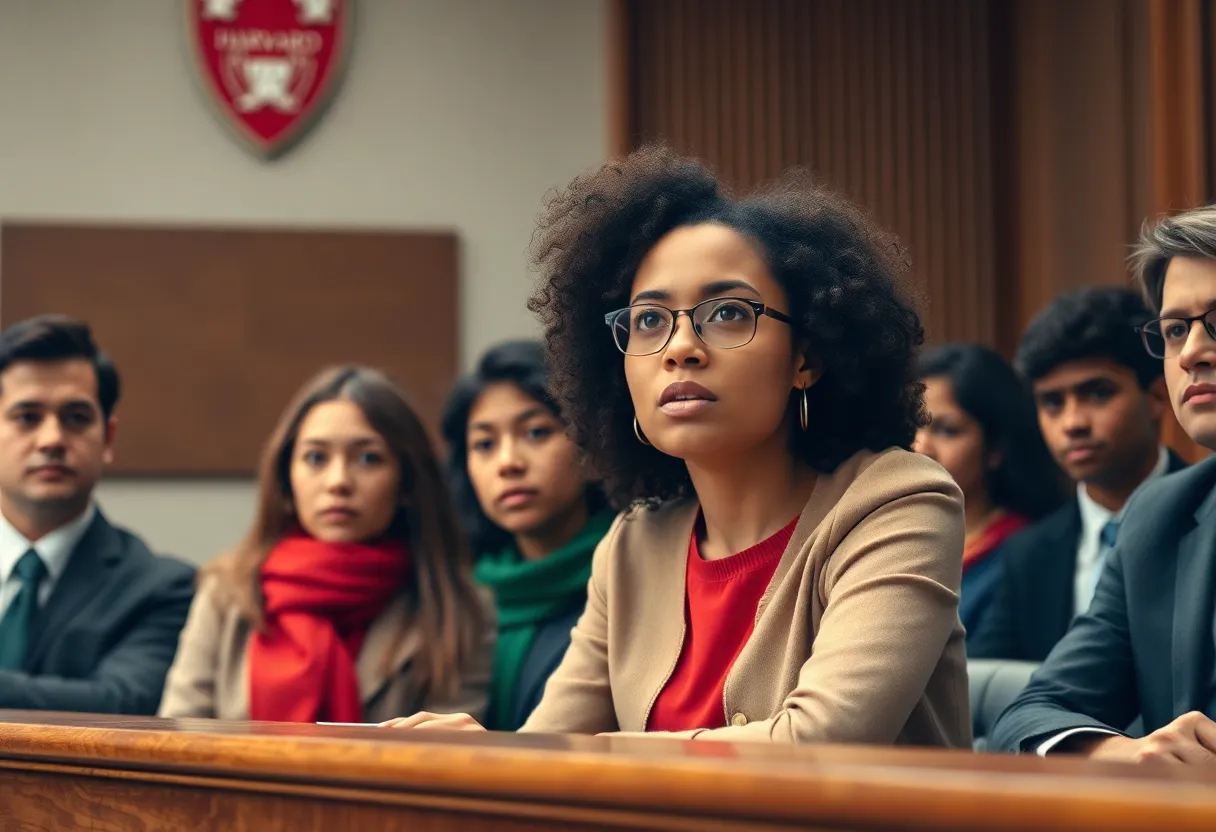

Students concerned about the implications of the international student ban at Harvard
The Trump administration’s efforts to ban international students from Harvard University have ignited a legal battle, raising concerns over academic freedom and financial repercussions. Harvard secured a temporary restraining order against the government’s actions, protecting over 7,000 international students from potential visa complications. Amidst allegations of antisemitism and safety concerns, the university defends its position citing constitutional rights. As the situation unfolds, the implications for academic institutions and international students alike remain uncertain.
In a dramatic episode shrouded in legal contention, the Trump administration’s attempts to impose a ban on international students attending Harvard University have set off a volatile chain reaction. As of May 2025, tensions reached a boiling point, leading to rampant discussions about possible legal ramifications.
President Trump expressed his frustration publicly regarding Harvard’s perceived delay in providing critical information about its foreign students. His anger was dereferenced in various communications, as he suggested that the sluggish response justified government action against the prestigious institution. The President even floated the notion of withdrawing a staggering $3 billion in grant funding to redirect those resources toward trade schools, highlighting a sharp pivot in educational funding priorities.
With the tensions escalating, Harvard University sought refuge in the legal system and was granted a temporary restraining order by Judge Allison D. Burroughs on May 23, 2025. This judicial intervention put a stop to the government’s move to revoke Harvard’s certification in the Student and Exchange Visitor Program (SEVP). This program is crucial as it allows educational institutions to enroll international students with F-1 or J-1 visas.
The order acts as a shield for Harvard, as losing SEVP certification would have dire consequences for over 7,000 visa holders—a figure that constitutes more than 25% of the university’s student body. Harvard’s legal argument rests on claims that the administration’s actions contravene the First Amendment, the Due Process Clause, and the Administrative Procedure Act, raising points of academic freedom and institutional authority.
On the other side of the legal debate, Secretary of Homeland Security Kristi Noem accused Harvard of failing to comply with information requests regarding international students, citing safety concerns for Jewish students on campus. The administration has been vocal in its allegations that the university fosters an unsafe environment, while also claiming it integrates antisemitic rhetoric and sympathies toward Hamas in its academic discourse. This multifaceted clash emphasizes the stark divisions surrounding academic freedom, antisemitism, and free expression on U.S. campuses.
The confusion surrounding potential immigration status has rippled through the international student community, leaving thousands anxious and uncertain about their future in the United States. Many have voiced fears about their legal standing amid the governmental volatility and subsequent lawsuit. Calls for Harvard to bolster support and protections for these students have multiplied, underscoring the critical need for robust advocacy in an increasingly precarious environment.
The fallout from the government’s proposed actions extends beyond student concerns; it could threaten Harvard’s financial landscape as well. A loss of SEVP certification could imperil an astounding $2.2 billion in federal research funding, further complicating the university’s fiscal health and academic programs. With the stakes elevated, Harvard remains steadfast in pursuing its legal challenge while advocating for the global academic stature it has long maintained.
The broader implications of this crisis signify a crossroads for academic institutions nationwide. The duality of promoting rigorous academic inquiry while ensuring a safe and inclusive environment continues to be a major theme in the ongoing discourse about the future of higher education. As the legal battles progress and tensions simmer, the world watches closely to see how this extraordinary saga unfolds in the coming months.
Harvard University Faces International Enrollment Crisis
Closure of CARD Clinic Raises Health Concerns in Libby
Charleston Prepares for Extended Rain and Cold Weather
University of South Carolina Tops International MBA Rankings Again
Lawyer Questions Trump’s Views on Due Process in Deportation Case
Charleston Springs into Action with Exciting Events
Lawyers Unite as International Students Face Visa Termination Crisis
University Presidents Unite Against Federal Funding Threats
Charleston Prepares for Winter Storm and Snowfall
Winter Storm Blair Causes Turmoil in the Southeast
News Summary North Carolina and South Carolina face multiple wildfires, leading to evacuations and a…
News Summary Columbia, South Carolina, is under a winter weather advisory as forecasts predict a…
News Summary Authorities in South Carolina have charged six individuals in connection with the fatal…
News Summary Francis Injury Car & Truck Accident Lawyers achieved a significant legal victory in…
News Summary Traffic fatalities in California show a promising decline, with reports indicating a decrease…
News Summary The POWER List highlights Missouri's top personal injury attorneys, emphasizing their achievements in…